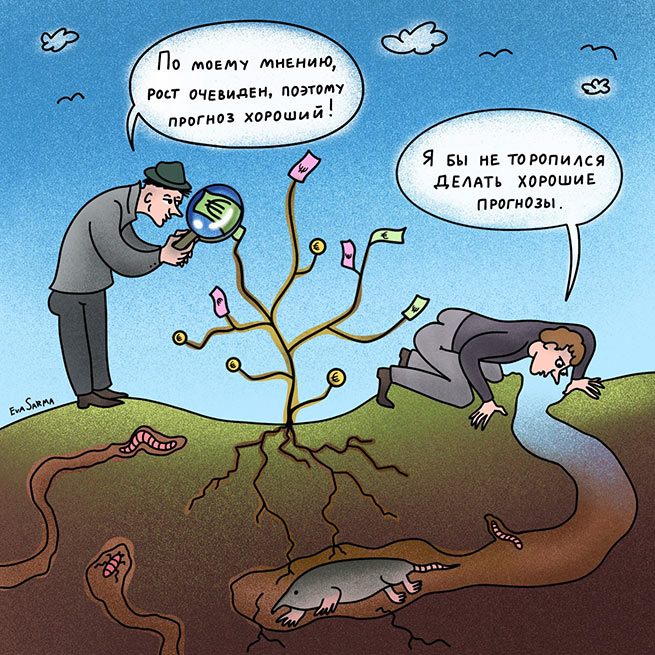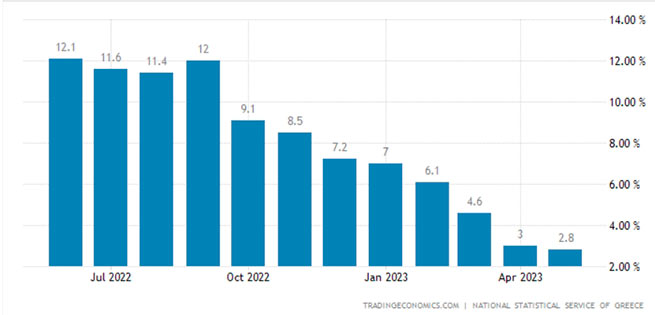After the elections on June 25, there will be a price increase for subscribers who use landline phones and ιnternet. Providers got the go-ahead to change prices in line with inflation. At the same time, they will obviously focus not on the official inflation rate of 5%, but on its real indicators …
Increases in landline, mobile and internet rates are to be expected after the elections, as the National Telecommunications and Postal Commission (EETT) has given the green light to change the rules allowing rates to be indexed, according to ethnos.gr.
Providers’ request for price indexation granted
Telephone and Internet providers have long filed a request with the relevant authorities to increase tariffs. It was an attempt to mitigate the increased costs of electricity, as well as the reduction in their income due to inflation.
This is because the decision to adjust tariffs cannot be made unilaterally, since according to the EETT provision, the terms in existing contracts cannot be changed by canceling those that were agreed during the entire duration of the contract. However, it is not clear who signed this decision, since the current interim government does not have such powers, and the previous government did not report such actions.
Price change once a year
After receiving the green light from EETT, providers will be able to change rates once a yearadjusting them according to the inflation rate announced ELSTAT.
With regard to existing contracts, it is likely that there will be a possibility refusal of the subscriber from services before the expiration of the contract without paying a fine (penalty) in case of early refusal. However, this does not mean that they will not find a new position in front of them in the next provider they turn to.
The EETT has already decided to take this issue to public consultation, which is expected to begin within a week. However, the results and the new regulation will come after the elections, as the period of consultation is set at 30 days, although it is possible that it will be extended if requested by the parties concerned.
The cost for subscribers is not yet clear
The possibility is currently being discussed that some of the adjustment “jumps” will continue to be absorbed by the telecommunications service providers so that the subscriber is not burdened with the entire increase. However, the final composition of consumer fees has not yet been determined, as all this will be clarified during consultations.
There is no certainty that providers will reduce tariffs when inflation falls, but what is known for sure is that another burden will fall on users at a time when their incomes are shrinking from everywhere, even without being indexed for the majority.
At a meeting with journalists at the end of 2022, Vodafone Greece CEO Haris Brumidis mentioned the increased operating costs of telecommunications companies. “The operating costs of telecommunications companies, which are very energy intensive by nature, are very high. The entire network consumes energy, so the costs are very high. At the same time, we are already seeing strong inflationary pressure on all the materials we use. For example, only in optical fibers the cost in some areas has risen by 80%, and of course there is also the cost of labor, because with inflation of 10%, 11% or 9%, it is necessary to increase wages, especially for the lowest paid, so that they can match the increased cost of living”– he said.
He even calculated that the triple whammy of energy, inflationary pressures and rising wage costs would cost Vodafone Greece 60 million euros in 2023 alone.
Internet in Greece is one of the most expensive in Europe
Greece has been among the countries with the most expensive Internet connection tariffs for many years. Although prices have relatively improved compared to the past, they are still higher than in many other countries. EU.
As shown by the European Digital Economy and Society Index (DESI) 2022, together with Austria, Greece has more attractive prices for packages with lower speeds, but still ranks among the countries with the highest prices for speeds over 100 Mbps. And this at a time when, according to the same index, only one in five households has access to very high speeds (VHCN).
Based on the findings, fixed broadband prices in Greece are slightly higher than the European average, while the pattern differs from the rest of Europe.
Official data on inflation in Greece. Provided by the site tradingeconomics
It is worth noting that, according to the Greek budget for 2023, adopted by the Parliament for consideration, harmonized inflation is expected to fall to 5% in 2023. However, judging by the rise in prices for products, manufactured goods and services, this figure will be much higher.








More Stories
How much does a square meter of housing cost in the Cyclades
Electricity: subsidy only for 500 kilowatt-hours, 80% for each additional kilowatt-hour
Construction Materials Prices Increased by 5.4% in June